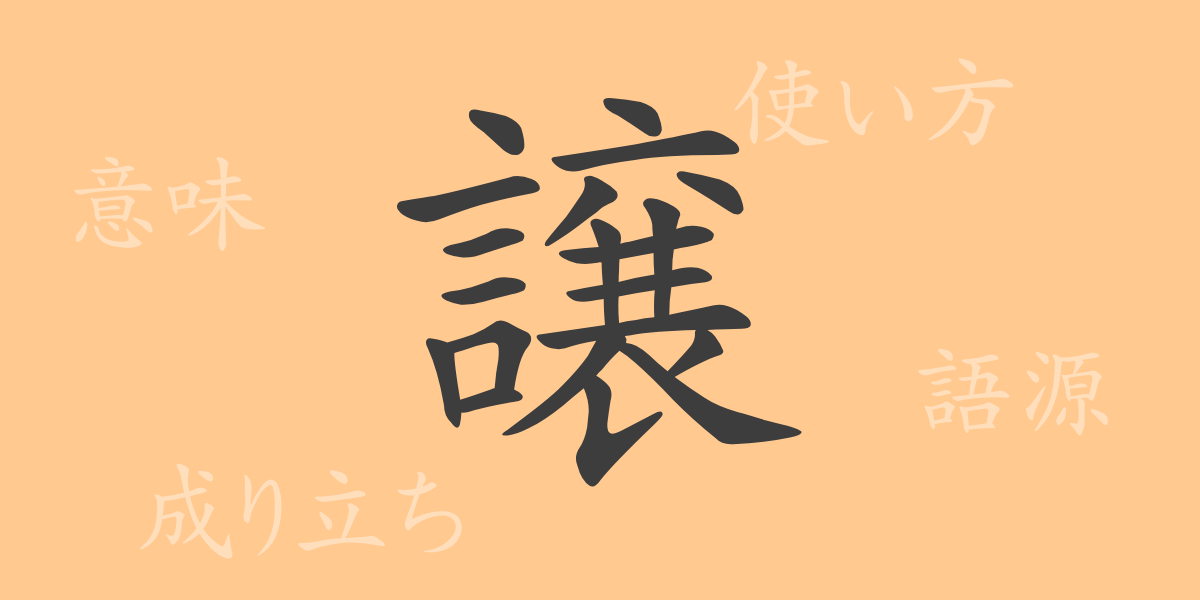Japanese kanji are known for their beauty and complexity, each character deeply infused with history and cultural significance. ‘譲’ (じょう), a commonly used kanji in Japanese, encapsulates these qualities. This article explores the etymology, meaning, usage, and also the phrases and idioms associated with ‘譲’, delving into the spirit encapsulated within this single character.
Origins of 譲 (じょう)
The kanji ‘譲’ originated in ancient China. It is composed of ‘言’ (ことばへん) on the top, signifying communication or declaration, and ‘壌’ (じょう) on the bottom, which means land. Initially representing the act of transferring something from a superior to a subordinate, it evolved to encompass a broader sense of transferring or yielding something more generally, whether tangible like land or intangible like rights.
Meaning and Usage of 譲
‘譲’ means to give up or transfer something that one possesses to another person. It also includes the nuance of yielding one’s opinion out of respect for another. Common contemporary uses include ‘席を譲る’ (せきをゆずる – to give up one’s seat) and ‘権利を譲渡する’ (けんりをじょうとする – to transfer rights), reflecting its usage in everyday Japanese.
Readings, Stroke Count, and Radical of 譲
The kanji ‘譲’ is utilized with various readings, depending on the context:
- Readings: On’yomi (おんよみ) ‘ジョウ’, Kun’yomi (くんよみ) ‘ゆずる’
- Stroke Count: ‘譲’ consists of 20 strokes.
- Radical: The radical is ‘言’ (ことばへん), related to speech.
Phrases, Idioms, and Proverbs Using 譲 and Their Meanings
‘譲’ appears in many Japanese idioms and proverbs, reflecting its integration into the language and culture:
- 譲渡 (じょうと): The act of transferring ownership or rights to another person.
- 譲歩 (じょうほ): Conceding to another’s demands to progress a situation, often compromising one’s own stance.
- 譲位 (じょうい): The act of an emperor or king abdicating their position to someone else.
- 年を譲る: An older person acts as if they were younger out of respect for someone younger.
- 道を譲る: Letting someone else go first or making way for another person.
Conclusion on 譲
The kanji ‘譲’ plays a significant role in Japanese language, from its historical roots to its modern applications. It symbolizes the act of giving and the respectful yielding of one’s stance, reflecting aspects of Japanese sociability and politeness. The use of ‘譲’ in various idioms and proverbs allows us to appreciate the depth and expressiveness of Japanese language, marking it as a character that embodies the subtle nuances of Japan’s culture and communication styles.

























